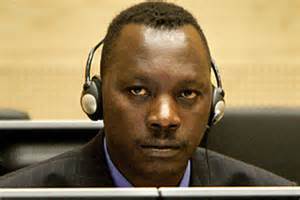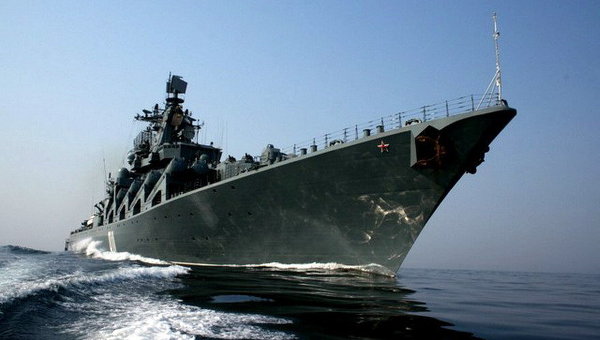On December 1, 2014 the International Criminal Court (ICC) upheld Congolese rebel leader Thomas Lubanga’s conviction for recruiting and using child soldiers, constituting its first-ever appeals verdict. A panel of several judges denied Lubanga, the first individual to be convicted by the court, on all seven grounds of his appeal. While this news lends comfort to many in the central region of sub-Saharan Africa, the verdict has also added to the legitimacy of the ICC. Nevertheless, complications within the Lubanga trial have obscured, rather than illuminated, the role of the ICC as an effective adjudicator in international relations.
The Creation and Implementation of the International Criminal Court
 Although the idea of institutionalized international justice dates back to the Hague Conventions of 1899 and 1907, it was not until post-WWII that the international community began to seriously consider a judicial body to deal with the adjudication of international criminals. In one of the most significant Nuremberg Trials, the Trial of the Major War Criminals sought to punish individuals involved in the atrocities committed against the Jewish people of Europe. After convicting 19 defendants, and imposing the death sentence in 12 cases, legitimacy was questioned due to the fact that the Charter of the International Military Tribunal had been adopted after the crimes had been committed, constituting ex post facto criminalization – criminalizing actions that were not previously deemed illegal.
Although the idea of institutionalized international justice dates back to the Hague Conventions of 1899 and 1907, it was not until post-WWII that the international community began to seriously consider a judicial body to deal with the adjudication of international criminals. In one of the most significant Nuremberg Trials, the Trial of the Major War Criminals sought to punish individuals involved in the atrocities committed against the Jewish people of Europe. After convicting 19 defendants, and imposing the death sentence in 12 cases, legitimacy was questioned due to the fact that the Charter of the International Military Tribunal had been adopted after the crimes had been committed, constituting ex post facto criminalization – criminalizing actions that were not previously deemed illegal.
An attempt by the UN General Assembly to initiate an international criminal court failed during the 1950s, as both blocs during the Cold War were afraid to create a body that might be advantageous to the other. Nevertheless, as international tensions subsided in the early 1990s, a Commission of Experts was established by the UN Security Council in order to identify a range of war crimes and crimes against humanity that were being committed in Bosnia. Accordingly, by 1994, two ad hoc tribunals were set up to address crimes committed in the former Yugoslavia and Rwanda, subsequently paving the way for the establishment of a permanent international criminal court.
Using the International Law Commission’s draft statute as a basis, the General Assembly continued to push for the implementation of the ICC. By July 17, 1998, 120 states voted to adopt the Rome Statute of the ICC, providing the Court with the power to try and punish individuals for human rights violations. As of April 11, 2002, 60 states ratified the Rome Statute, allowing for the creation of the ICC on July 1, 2002.
Notwithstanding the fact that the ICC’s creation was a feat in itself, many (realist) international relations scholars see supranational adjudication as an object of ridicule. From a realist point of view, the creation of another international institution is an futile plan, ultimately destined to fail in an anarchic environment. Nevertheless, legitimacy power accumulates over the history of an institution, and 12 years after its inception, sound judgments can be made concerning the ICC’s legitimacy in international affairs.
The Lubanga Case as a Step Towards International Legitimacy
 Beginning in 1998, multiple factors sent the Democratic Republic of the Congo (DRC) into civil war. Generated by competing claims to land and resources and intensified by ethnic differences, the Hema and Lendu ethnic groups battled for control of Ituri, one of the richest regions in the DRC. Forming the Union of Congolese Patriots (UPC) in 2002, Lubanga relied on the Hema and other ethnically aligned groups to win over Ituri, including with the conscription and use of child soldiers under the age of 15. By March 2004, tens of thousands of civilians were killed, leading authorities in the DRC to refer the situation to the ICC.
Beginning in 1998, multiple factors sent the Democratic Republic of the Congo (DRC) into civil war. Generated by competing claims to land and resources and intensified by ethnic differences, the Hema and Lendu ethnic groups battled for control of Ituri, one of the richest regions in the DRC. Forming the Union of Congolese Patriots (UPC) in 2002, Lubanga relied on the Hema and other ethnically aligned groups to win over Ituri, including with the conscription and use of child soldiers under the age of 15. By March 2004, tens of thousands of civilians were killed, leading authorities in the DRC to refer the situation to the ICC.
Taking several months to find a reasonable basis to commence the investigation, former ICC prosecutor, Luis Moreno-Ocampo, announced the opening of a formal trial, making Lubanga the first person committed for trial before the ICC. Scheduled to begin on June 23, 2008, the ICC’s Trial Chamber suspended the trial because of concerns that Lubanga’s trial would not be fair. By definition, a fair trial requires that the accused must have access to information that might help prove his innocence. In this case, the prosecutor had not disclosed all mitigating information, leading the judges to deem the case not fair and a violation of Lubanga’s rights. By insisting on upholding the principle of a defendant’s right to a fair trial, regardless of the alleged crime, the ICC provided the international community with evidence that the institution would be a legitimate source of justice.
The ICC’s commitment to a fair trial in the Lubanga case has helped the judicial institution move closer to legitimacy.
Appealing the decision by the Trial Chamber to set Lubanga free, the prosecutor succeeded in keeping Lubanga temporarily detained. Accordingly, by November 2008, the judges agreed that the prosecutor had taken all necessary steps to give Lubanga a fair trial. Although the trial began in January 2009, the judges ordered a second stay of proceedings in July 2010 when prosecutors failed to disclose the identity of an intermediary who had helped the prosecution contact witnesses. Arguing that the safety of the intermediary was at risk before protective measures were taken (e.g. relocation), the trial restarted on October 25, 2010 and by July 10, 2012, the ICC Trial Chamber sentenced Lubanga to a total of 14 years imprisonment for enlisting and conscripting child soldiers under the age of 15.
The ICC’s commitment to a fair trial in the Lubanga case has helped the judicial institution move closer to legitimacy. Further, the Lubanga case provides evidence that while the functioning of an impartial judicial institution may be slow, it is indeed a fair and credible source of international adjudication. In the words of former UN Secretary-General, Kofi Annan, “The overriding interest must be that of the victims, and of the international community as a whole. The court must be an instrument of justice, not expedience. It must be able to protect the weak against the strong. It must demonstrate that an international conscience is a reality.”




